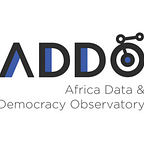Inside Al-Shabaab’s digital propaganda machine
In the dark corners of the internet, where extremist groups are often hidden, Al-Shabaab has cultivated a complex digital network.
In the dim corners of the internet, where the digital footprints of extremist organisations often evade detection, lies a tangled network carefully orchestrated by Al-Shabaab.
Terrorist organisation Al-Shabaab has been waging a violent insurgency in southern and central Somalia and northern Kenya for more than a decade. Despite being ‘defeated’ in 2007, the group has persisted in its attacks against governmental forces, peacekeepers, and aid organisations and has controlled various strategic locations over the years.
This investigation by Code for Africa delves deep into the complex network of platforms exploited by Al-Shabaab, uncovering two pivotal media outlets: Shahada News Agency and Al-Kataib.
We unravel their affiliations and explore their web of dissemination, shedding light on the critical challenge of countering digital extremism in an era of rapid information flow.
Shahada News Agency is a prominent mouthpiece for Al-Shabaab and its affiliates operating in Kenya and Somalia. Billing itself as an organisation ‘interested in East Africa and Somalia news’, Shahada News Agency strategically posts on Chirpwire, a platform without any content-moderation policies. This calculated choice grants extremist groups, including Islamic State and al-Qaeda affiliates, the freedom to disseminate their content unchecked, bypassing concerns about takedowns. In August alone, Shahada News Agency used Chirpwire to report seven attacks attributed to Al-Shabaab. All the posts were in Arabic.
According to website registration information on WhoisXML, the roots of Shahada News Agency trace back to its inception on 22 December 2016, when it was hosted by an entity called Enom Inc. Cadde Waasuge (phone number: +252 699 370 000). This media company, based in Howi-wadaag, Aden Adde, Mogadishu, Somalia, is registered as the owner of the account.
The email used in the registration of the shahadanews.com domain is Rixxxx@outlook.com. Through an email lookup tool called Epieos, CfA traced the email to a ‘Ridwaan Hassan Ali’. Digging deeper, we used Website Informer and found that Shahada News Agency also has another email address, ‘rixxxxxx@gmail.com’. A scan of the second email address showed that it was included in a Facebook post calling for charity funding. The email address ‘rixxxxxx@gmail.com’ is linked to a ‘Ridwan Xassan’, whose phone number is listed as +252 61xxxxxxxx. In the Somali language, ‘X’ is pronounced as ‘H’ making the link with the first email used to register shahadanews.com. The website shows that it has three administrators, whose usernames are ‘amaar’, ‘cammaar’, and ‘admin’.
CfA’s investigation further unravels Shahada News Agency’s reach, which extends beyond Chirpwire and infiltrates mainstream platforms such as X (formerly Twitter) and Facebook. CfA has discovered three accounts that systematically replicate content from Shahada’s Chirpwire page onto social media, a tactic used by extremist groups in the Sahel region to evade detection.
X account @Gurey1140 consistently reposts updates by Shahada on Chirpwire minutes after Shahada posts them.
Likewise, @abdisalambahdon on X consistently shares Al-Shabaab content disseminated by the Shahada News Agency. CfA also found that the Facebook account Abdisalam Bahdoon Ibrahim reshared a post from @abdisalambahdon, indicating the two accounts are affiliated. The consistency between the two accounts extends to their bios, which identify both account holders as Somali activists, and the Facebook bio reveals Abdisalam’s location as Nairobi, Kenya.
Al-Kataib multimedia platform
Al-Kataib is another Al-Shabaab mouthpiece. This media outfit specialises in disseminating visual documentation of Al-Shabaab operations, providing a window into the extremist group’s activities. Al-Kataib, which operates primarily through Telegram, maintains multiple channels and groups using several languages, including Bangla, a prominent language in Bangladesh.
One of Al-Kataib’s Telegram channels, ‘Al Kataib’, reshares extremist content from several private channels that are inaccessible to prying eyes. One channel of particular interest, called ‘KT foundation’, received the most reshares by Al-Kataib. This channel, much like the others, was private. Given the initials KT, we strongly suspect it may be affiliated with Kataib, potentially referencing ‘Al-Kataib foundation’.
Among Al-Kataib’s numerous Telegram channels and groups, we also found another group called ‘Al-Kataib media’. This one was public. In this group, a member discreetly shared a post containing a crucial lead — a Telegram channel link called ‘Warside Ridwaan’. The significance of this discovery lies in the name ‘Ridwaan’, a figure CfA linked to the registrant of the Shahada News Agency website.
This revelation establishes a pivotal connection between Al-Kataib and Shahada News Agency, suggesting a shared network or affiliation. The intricate interplay between these media arms sheds light on the depth of Al-Shabaab’s digital reach and the sophistication of its propaganda machinery.
As we continue our investigation into unmasking ‘Ridwaan’, it becomes increasingly evident that decoding the operations of Al-Kataib and Shahada News Agency is a key to dismantling Al-Shabaab’s web of extremist influence. This revelation underscores the urgency of monitoring and countering the terrorist group’s digital presence. In addition, it highlights the critical importance of global cooperation in neutralising the threat posed by these adept manipulators of cyberspace as they use their influence to extend their extremist reach in the Sahel and beyond.
This report was produced as part of the Congress for Peace (COPP) initiative at the African Digital Democracy Observatory (ADDO), to improve local understanding of how online extremism undermines public trust in democratic institutions in Burkina Faso, Côte d’Ivoire, Mali, and Niger. COPP is supported by the US State Department’s Bureau of African Affairs, Office of Public Diplomacy and Public Affairs (AF/PDPA). ADDO is a nonpartisan network of independent research institutes focused on analysing information manipulation and online harms across Africa. ADDO is managed by Code for Africa (CfA).
This article was written by iLAB deputy insights manager Mitchelle Awuor, based on analysis by iLAB investigative analyst Khattab Hamad. It was edited by iLAB managing editor Athandiwe Saba and copy edited by iLab copy editor Theresa Mallinson.
